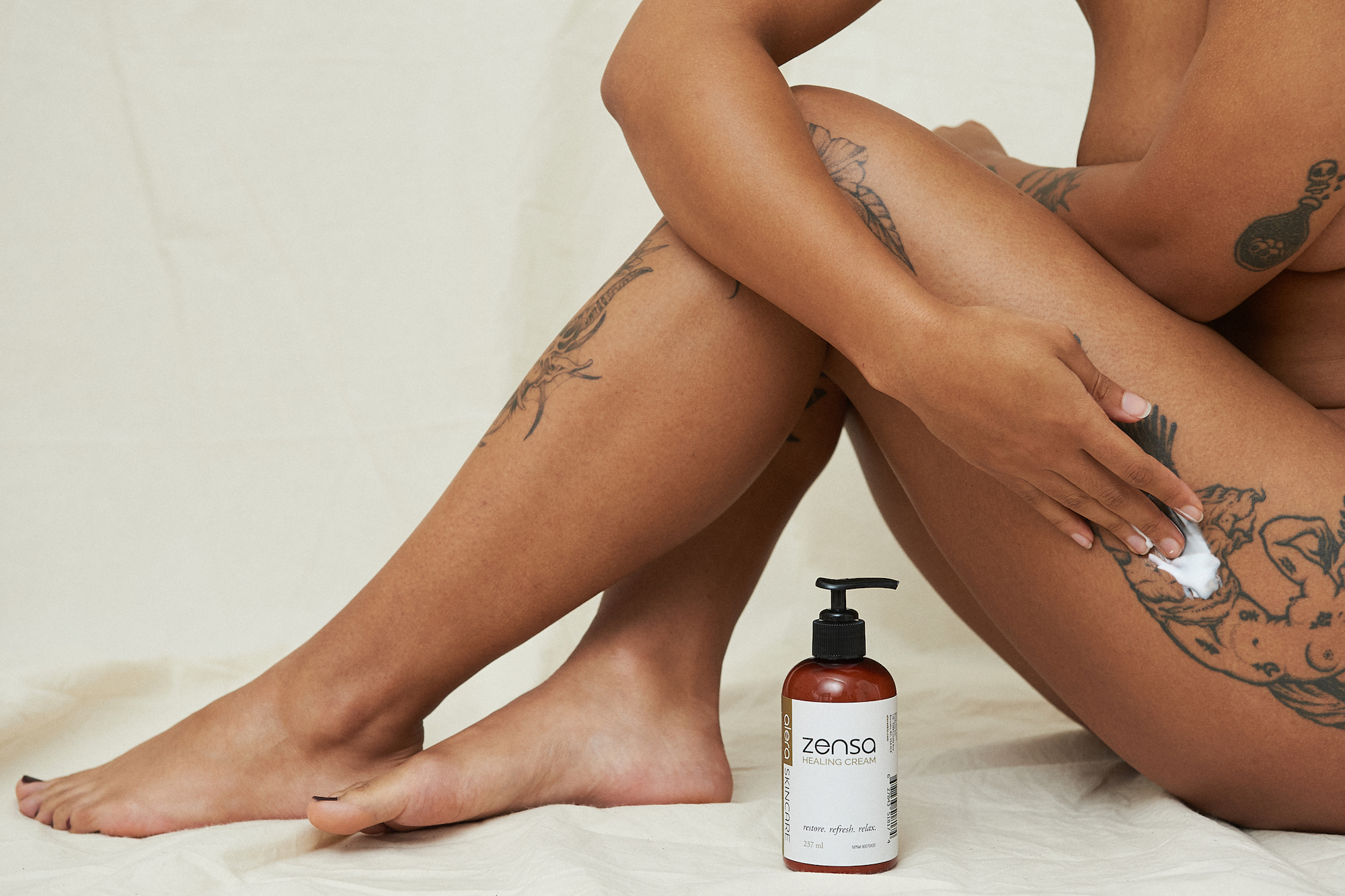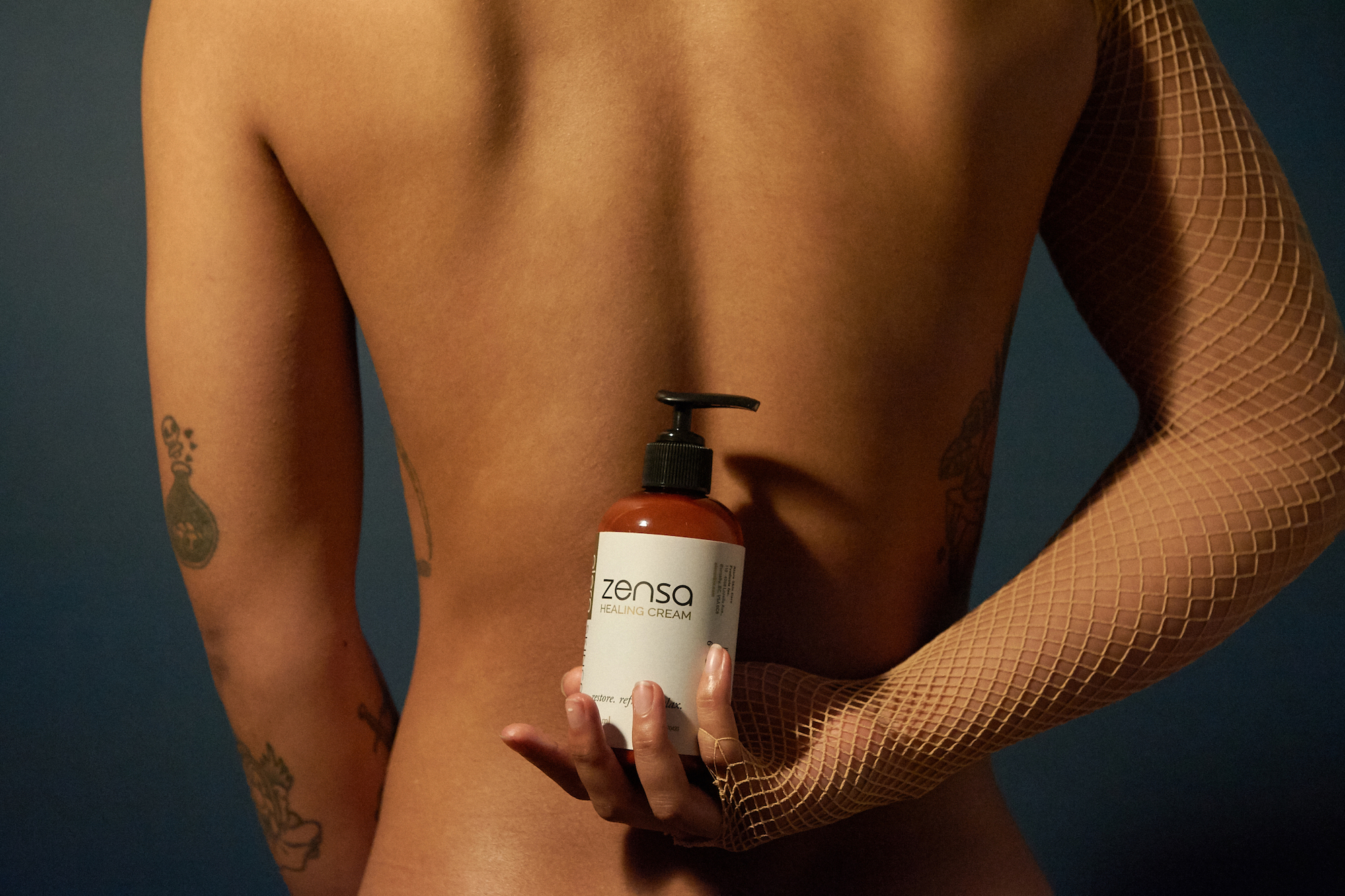Your Guide To Sunflower Seed Oil's Powerful Skin Benefits
Your Guide To Sunflower Seed Oil's Powerful Skin Benefits
Sunflower seed oil’s restorative and nourishing benefits are a golden ticket to healthy, healed skin. Derived from its namesake flower, sunflower oil is extracted from the plant’s seeds and has been used as a dietary staple and topical remedy for centuries. Native Americans regularly ate sunflower seeds and incorporated the oil into their cooking. They also applied sunflower seed oil as sunscreen, hair conditioner and infused sunflower oil into medicinal treatments for snakebites and other skin wounds.
Since its European discovery in the 1500s, researchers have confirmed the science behind these indigenous use purposes. Sunflower oil is an emollient (a moisturizing ingredient or product) made from the flower’s crushed-up seeds. It is a non-comedogenic oil, meaning that it is highly absorbent without clogging your pores and is a non-irritating treatment suitable for nearly all skin types. This botanical extract can be used on its own, as a carrier oil (to combine with other essential oils) or incorporated into another skincare cream to maximize its advantages. From aiding chronic skin conditions to improving skin texture, discover more about sunflower oil’s benefits below.
Fights Acne & Inflammation
Antioxidants might be the natural secret to managing acne. Without enough antioxidants, your collagen production and cellular turnover slow down. This increases the chances for dead skin cells, dirt and other microbes to remain to clog your pores. Sunflower seed oil contains vitamins A, C, D and E, which reduce redness and swelling while hydrating your skin and supporting your immune system.
It is also rich in linoleic acid (otherwise known as vitamin F), an essential omega-6 fatty acid that offers anti-inflammatory and antimicrobial properties. Linoleic acid’s antioxidant-rich profile also strengthens the skin’s barrier to fight against inflammatory free radicals. A 2008 study found that topically-applied sunflower oil significantly reduced severe infections in premature infants - further confirming the oil’s germ and bacteria-fighting properties.
These benefits also aid in managing chronic inflammatory skin conditions, including eczema and psoriasis.
Anti-Aging & Sun Protection
Sunflower seed oil is rich in vitamin E, an antioxidant that helps lock moisture into the skin cells while promoting collagen and elastin production. These systems boost hydration and cell turnover to help your skin maintain its elasticity and supple texture. Vitamin E also is a moisturizing powerhouse that leaves the skin resilient against dryness and reduces the appearance of wrinkles and fine lines. This hydrating barrier also protects the skin against the sun’s UV rays.

Along with linoleic acid, the sunflower seed oil’s diverse antioxidant profile strengthens the skin’s barrier to shield it from the harmful rays associated with unprotected sun exposure. Effective sun protection reduces the skin’s aging process and helps prevent dryness. As a result, this botanical oil can lessen the appearance of wrinkles, fine line sunspots and other uneven skin texture concerns associated with long-term UV ray exposure.
Applying daily sunscreen remains a must. However, incorporating sunflower seed oil (or a cream containing the flower’s extract) into your skincare routine provides another layer of youth-promoting protection and leaves your skin silky smooth, too.
Maximizes Hydration
Sunflower seed oil is naturally designed to revive dehydrated skin. Its ability to create a skin barrier supports cell hydration and water retention. Sunflower oil also contains oleic acid, another name for omega-9 fatty acids. It is an anti-inflammatory acid known for its hydrating and moisturizing properties that restore your skin’s natural oils without clogging your pores.

Promotes Wound Healing
Sunflower seed oil’s regenerative properties make it an optimal natural remedy for wound healing. It promotes collagen production and cellular turnover to help heal the wounded skin layers and replace them with new, healthy cells to protect the area. The oil’s protective barrier creates a shield around the wound to keep moisture and antioxidants locked in the skin while preventing dirt, germs and other pollutants from infecting the vulnerable area.
Zensa Healing Cream utilizes sunflower seed oil’s powerful moisture-retaining and protective benefits to aid the after-care processes for treatments, including tattoos, permanent makeup, hair removal and cosmetic injectables. It aids in combating any dryness associated with the early healing stages and scabbing.

The oil also re-hydrates the area to help minimize scarring and reduce itching. A small 2004 study conducted with lambs found that lambs who received sunflower oil on their wounds saw a significant acceleration in their healing journeys.
These wound-healing benefits also make sunflower seed oil ideal for treating skin conditions, such as eczema and smaller wounds.
Soothe & Improve Skin Texture
These anti-inflammatory benefits work together to combat redness from acne, itchy skin and conditions like rosacea and are effective to help treat sunburns, too. Sunflower seed oil contains beta carotene (which converts to vitamin A in the body), which brightens the area and leaves your skin glowing.
How To Apply Sunflower Oil
Use on the skin immediately after washing your skin with warm water. This routine will ensure that the oil will be able to absorb properly into the skin. Pour a small amount of the pure oil or sunflower seed oil-containing product onto your hand and rub it in thoroughly. When applying to a wound, make sure not to apply too much of the oil as using excess product could potentially lead to a skin rash.
